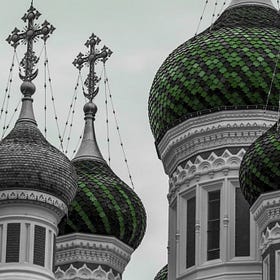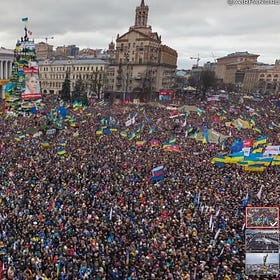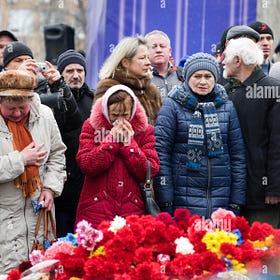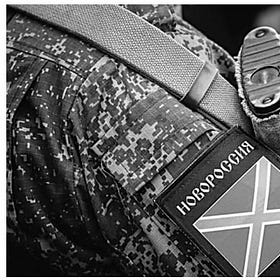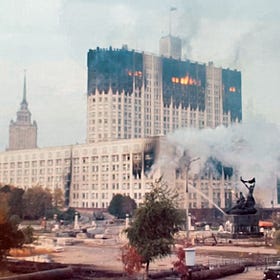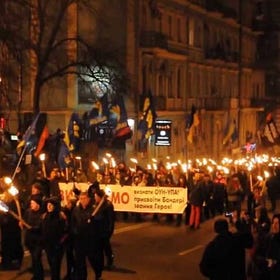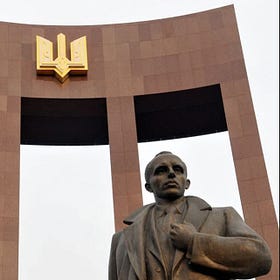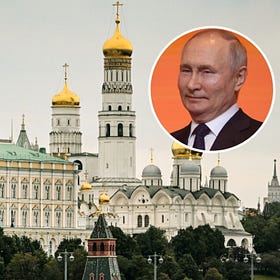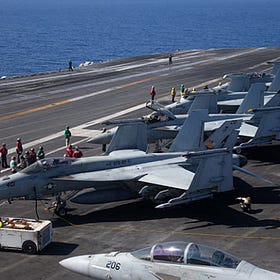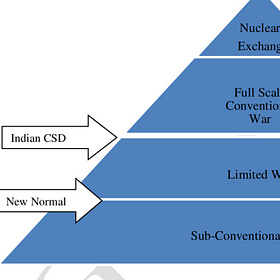INDEX: Contemporary Thought on foreign and domestic Russian Policy.
We seek to understand a more equitable way to govern the world. Many want a previously advantageous system. Those with favorite systems claim there is no alternative. Others hope for a hybrid system.
How can we know people’s true objectives on the international scene? It should be obvious that true goals are held in secret, not to allow premature opposition. The heads of state have a role to propagate a national narrative. We are the “good guys” and our policies are for the betterment of all. Yet we must know that their national interests supersede all other considerations. It doesn’t take advanced research to be sure of that.
Then there are the second and third tier officials that may speak of slightly different procedures. Much of national rhetoric is used for testing the reaction to novel concepts. It can be passed off as just another loud-mouthed functionary. But it might even be that various cabinet members are “assigned” different talking points, to see which can gather consensus. In some cases, (like with Trump), the main voice might oscillate onto various topics to see what will take hold. All of them could be desirable for someone, but which one to lead forward with, for a probable success?
We generally see and judge a person individually, by his (or her) demonstrated rationality. Government leaders usually give a calm message of everything is under control, and we are working successfully for our populations. Trump speaks much theater, that most likely cannot be implemented.
Now I see Trump as a team. He makes radical, shocking statements. His voters want change, and it sounds like he will give it to them quickly. These statements might be difficult to relate to the truth, (or they don't). Then Vance, who is standing right there chimes in, "Mr. President said this, which is exactly what we need", and we will deliver. Vance ties it to some form of a truth. Musk is testing the water with other far-out statements. And Rubio and the others are putting together a coherent story.
Trump is testing his ideas, and most important he strongly stays in the news cycle, everyday. His theory is that it is much worse to be ignored, than to be understood. Understanding comes later from actions, not now, from words.
I DO NOT BELIEVE NATIONAL LEADERS AND PRESIDENTS CAN INFORM US OF THEIR TRUE NATIONAL ASPIRATIONS.
We have to discover “think-tank” leaders, political and strategy authors, and important voices in public policy to discover how their future plans might impact us. That is the intention of this thread. I am not sure that we can find secondary voices in every country, (I will look). I think Russia is a good starting point, with a variety of voices. So far I have found important background with a variety of authors. But everything written before the Special Military Operation cannot project the future. They can only give coherence to an unclear past. That is important too, if we have not yet heard the complete details.
I may include other countries, if authors and insights are impactful to the whole.
1. Review of Russia's Foreign Policy Climate 2012 - 2018
No book can be comprehensive abut Russian foreign policy without considering the (now) 3 years of war in the Ukraine. This is only the "run-up" to the Ukrainian war, (written in 2019), so it must be incomplete. But it is a vital groundwork to remember all the twists and turns. You can find on line:
2. BACKGROUND ON UKRAINE, Yanukovych 2002 – 2014
Here is an overview of the main stages of the crisis as it unfolded—from President Viktor Yanukovych's sudden withdrawal from negotiations with the European Union about an Association Agreement (AA), in November 2013, until September 2014, when the ceasefire agreed to by Moscow and Kyiv marked the end of the summer military campaign. We can also look be…
3. Another look at the Euro-Maidan and its Snipers
A deep voice crackled over the radio. ‘Work, on my mark. With a three-second countdown.’ The silence was broken again seven seconds later as a second voice came on the frequency. ‘Okay, ready.’ ‘Ready’, said a third voice. ‘Three. Two. One.’ There followed the echoed sound of high-velocity rifle shots. ‘Three. Two. One.’ More shots. Then later: ‘Forty-f…
4. The American people are not going to war with Russia over Ukraine, full stop.
IN THE WEST, the post-Yanukovych government in Kiev seemed like heaven on Earth, a place for the birth of democracy; in Moscow, it seemed like hell, an anti-Russian cabal in its own backyard. “Unacceptable” was Putin's response. He had a plan, and he had every intention of putting it into effect. 4,525 words
5. The Generals coup d'état 1991, Yeltsin, and the 1993 Ostankino affair.
Here we are backing up to the time of dissolving the Soviet Union. The State Emergency Committee (GKChP) coup cemented Boris Yeltsin, president of the Russian Soviet Republic, as the dominant leader of the land and stripped the hardliners of their legitimacy. This drove a stake through the heart of the Union, leading directly to its demise four months l…
6. SHOCK THERAPY, The Harvard Boys - “Do Russia”, series 1 of 4
We in the west, and listening to narratives on how “we won the cold war” have no idea of what the Russian people were subjected to. I would say; neither did we care, being convinced that Russians were our ENEMY and deserved disaster. This post is a series
7. SHOCK THERAPY, The Harvard Boys - and the Troika, series 2 of 4
On top of the insult and danger of Western incorporation of former Warsaw Pact states into the NATO alliance, was the “shock therapy” economic policy of the “Harvard Boys” from the Harvard Institute of International Development (HIID) working on grants totaling tens of millions of dollars from USAID.[488] These included Undersecretary of the Treasury La…
8. OUN, Ukrainian for, Orhanizatsiia Ukraïns’kykh Natsionalistiv
We have been talking about the Orange Revolution and then the Euro-Maidan in 2014. I in no way say that the Soviet Union didn’t mistreat these people before, (and all people). That is another discourse that we are not considering here. It can be your call; what are the justifications in the cycle of HURT-HATE-&-REVENGE? But let’s go back further than…
9. Whitewashing Terrorists into National Heroes (Nazis)
Creating “The Book of Facts” During Yushchenko’s reign, his government repeatedly moved to make national heroes out of the OUN and UPA. They claimed these SS henchmen were wonderful, inclusive organizations that not only saved Jews but fought as their allies against both Hitler and Stalin.[725] They said
10. How and Why Putin got elected, & extent of his power
The Yeltsin campaign heralded the arrival of ‘political technology’ – the application of Western-style political communications and instruments to a partly authoritarian Russian context. The Soviet Union had been ruled by brute force and ideology, while the new era dawning in 1996 was ruled by post-modernistic manipulations and television.
11. First Years of the Putin Kremlin
We aim at managing dissent rather than crushing it. This ensures that every opposition political persuasion had a voice provided by a Kremlin-backed political party or movement. Liberals, nationalists, statists, environmentalists, rightists, leftists – all were represented (infiltrated) by a series of doppelgangers, (clones), stooges and pastiches in a …
This is also revealing on the contemporary Russian circumstances:
12 p. Understanding Psychological Differences Can Further Peace
The obvious answer is that a large enough fraction of the people have an “excess energy”, and demand to DO SOMETHING DIFFERENT. This excess energy in the Chechens allows them to get quickly excited about an idea, and may just as quickly resort to radical actions.
13. I will try to sort out early excesses of the Putin Kremlin
‘Surkov created the Russian political system of the 2000s, and he almost single-handedly ran it’. The system Surkov presided over from 1999 to 2011, under three presidents, was aimed at managing dissent rather than crushing it. (I repeat this paragraph from last post #11.)
14. The Russian way of Deterrence, Dmitry Adamsky 2023, from chapter 5
In parallel, the Russian expert community has begun its systematic examination of the war. As in the West, exploration in the field of “strategic deterrence” is likely to become one of the avenues of Russian postwar learning. There is already sufficient evidence from Ukraine to pose initial questions about Moscow’s wartime behavior and to frame the post…
15. SEVEN CONSIDERATIONS TO THE RUSSIAN WAY OF DETERRENCE AND DEEPER QUESTIONS
[NOTE TO READERS; I haven’t been posting for almost a month, (although I had this episode ready). I am still committed to the Library. Recently I have engaged with outside projects that take me out of the office and away from the computer. We bought some land last year, and now I am installing a water-system. This is intense work and I am doing mos…


